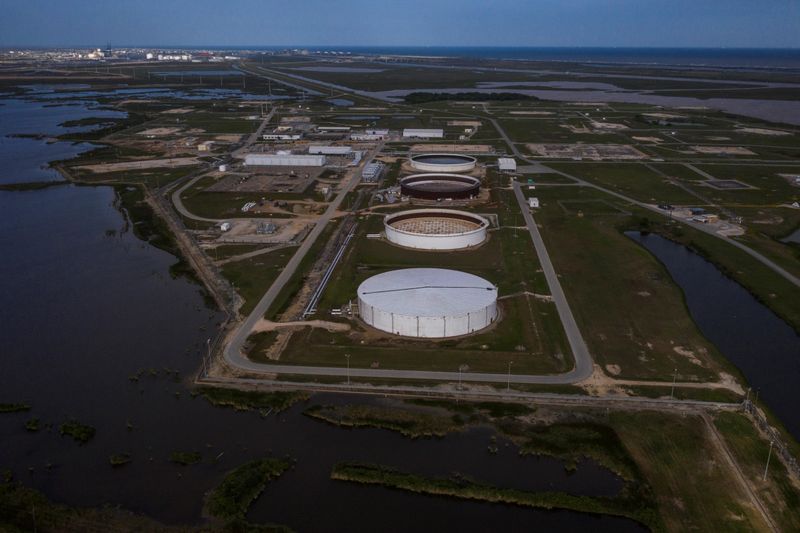(Reuters) - Any decision on whether the United States will tap its emergency oil reserve in order to lower crude prices is up to President Joe Biden, a senior Department of Energy official told reporters on Thursday.
"We're looking at all tools, and at the end of the day the president is going to decide what we end up doing," said the official when asked if the administration was going to tap the Strategic Petroleum Reserve, or SPR.
The White House on Thursday criticized a decision by top oil producers to stick to plans to only raise output gradually even as demand recovers as the COVID-19 pandemic eases.
Brent crude fell about 1% on Thursday to $81.17 a barrel on a report that Saudi Arabia's oil output will surpass 10 million barrels per day for the first time since the outset of the pandemic.
Prices had risen earlier after the OPEC+ production group agreed to stick to plans to raise crude output by 400,000 bpd on a monthly basis.
"OPEC+ seems unwilling to use the capacity and power it has now at this critical moment of global recovery for countries around the world," a spokesperson for the White House's National Security Council said.
Energy Secretary Jennifer Granholm said on Oct. 28 that U.S. retail gasoline prices are predicted to drop to about $3.00 a gallon by December, from about $3.40, and that the lower prices probably do not merit emergency action by the government to tap the SPR.

The DOE official, on a virtual press conference from Glasgow, Scotland at the COP26 U.N. climate talks, said the administration would continue to press oil producers to pump more. "We're certainly going to be on the phone with them talking about that."
When asked if the administration was planning a coordinated tap of global emergency supplies with other oil consuming countries, the official said the important thing is to convey to other oil producers the impacts of rising oil prices from held back supply.